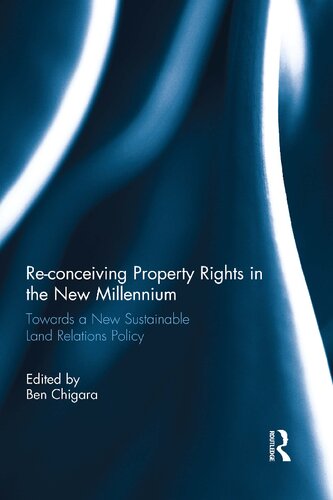

Most ebook files are in PDF format, so you can easily read them using various software such as Foxit Reader or directly on the Google Chrome browser.
Some ebook files are released by publishers in other formats such as .awz, .mobi, .epub, .fb2, etc. You may need to install specific software to read these formats on mobile/PC, such as Calibre.
Please read the tutorial at this link: https://ebookbell.com/faq
We offer FREE conversion to the popular formats you request; however, this may take some time. Therefore, right after payment, please email us, and we will try to provide the service as quickly as possible.
For some exceptional file formats or broken links (if any), please refrain from opening any disputes. Instead, email us first, and we will try to assist within a maximum of 6 hours.
EbookBell Team

4.7
86 reviewsThis book constitutes volume two of a two volume examination of development community land issues in Southern Africa. Following from volume one Southern African Development Community Land Issues, this book considers the possibility of a new, sustainable land relations policy for Southern African Development Community States (SADC) that are currently mired up in land disputes that have become subject of domestic, regional and international tribunals. Chigara demonstrates that land relations in the SADC have always been, and will perhaps remain, a matter for constitutional regulation. Because constitutional laws are distinctive from other laws only by constitutional design, legal contests appear to be the least likely means for settlement in the sub-region. Only human rights inspired policies, that respond to the call for social justice by acknowledging both the current and the underlying contexts to the disputes, hold the most potential to resolve these disputes.
The book recommends efficient pedagogical counter-apartheid-rule psychological distortions regarding the significance of human dignity (PECAPDISH) as a pre-requisite and corollary to the dismantling of the salient physical legacy of apartheid-rule in affected SADC States. The book shows that PECAPDISH’s potential and benefits would be enormous.
The book will be of interest to students and researchers of Property and Conveyancing Law, Human Rights Law, and Land Law.